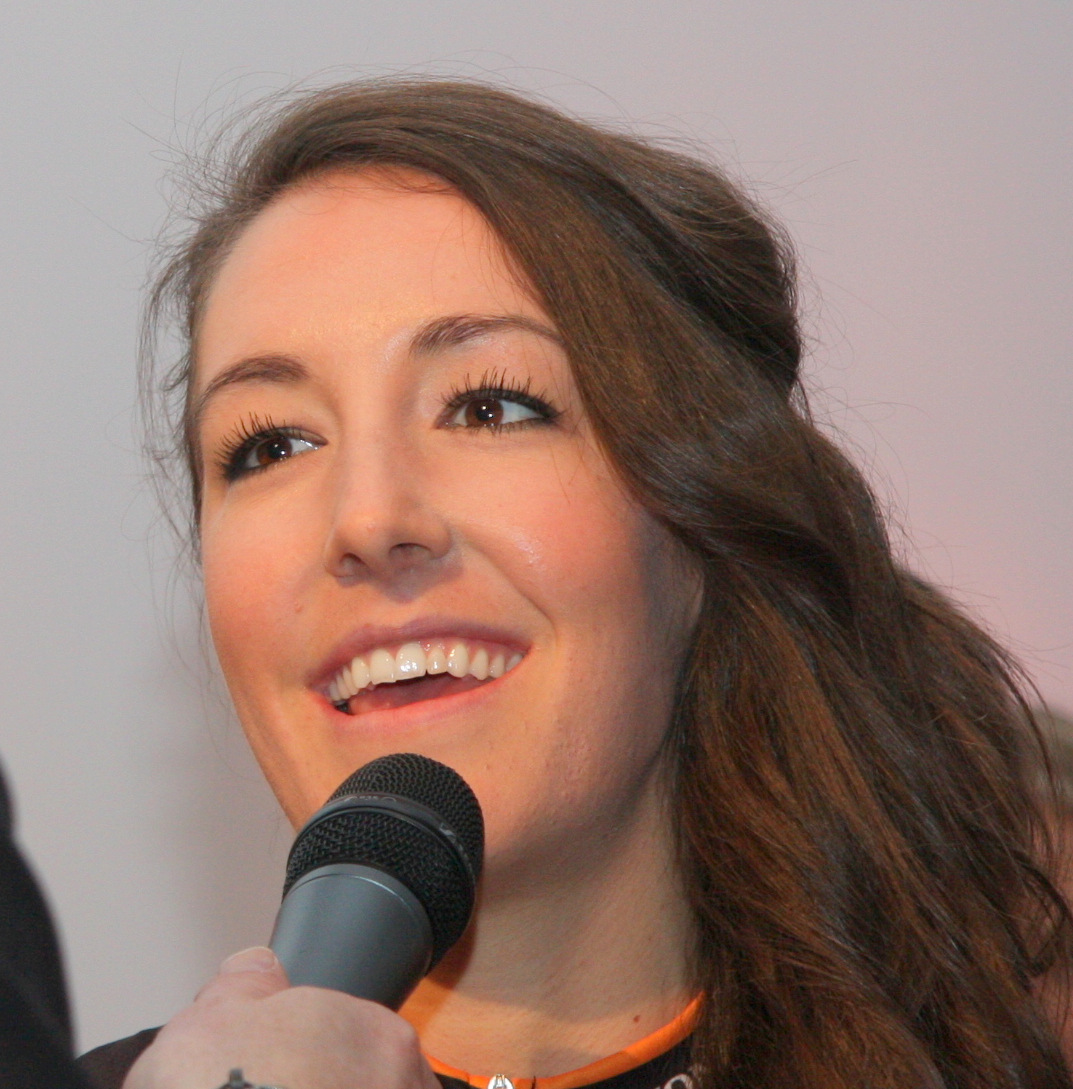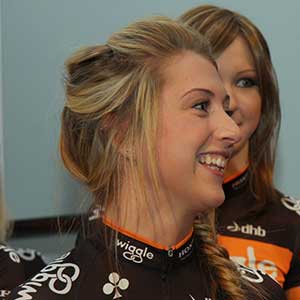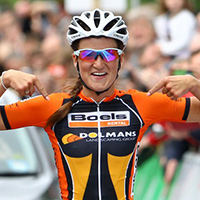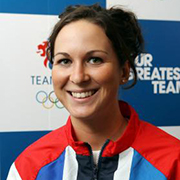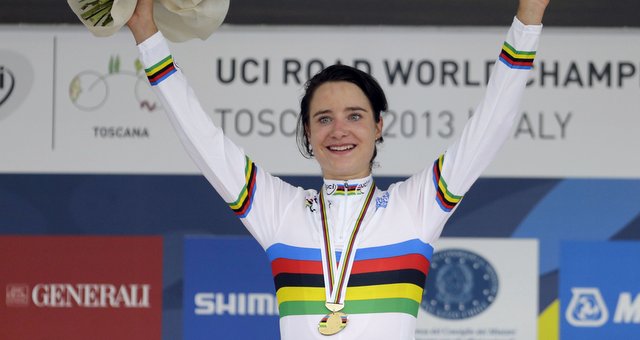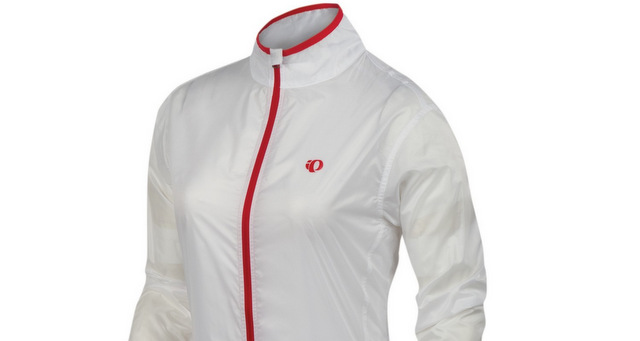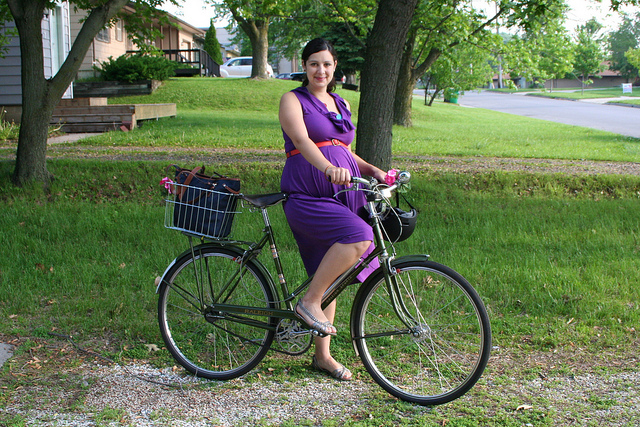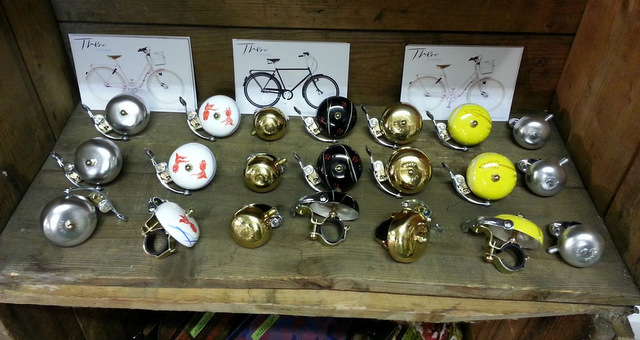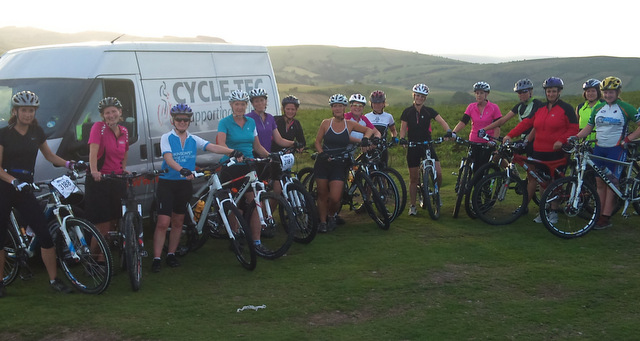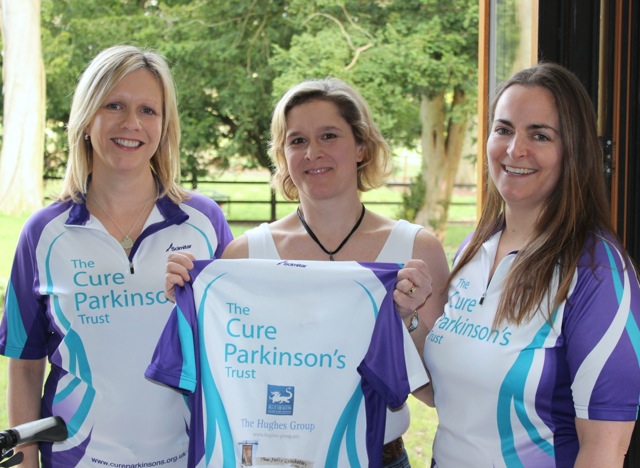For many of us the London Olympics were the highlight of 2012 and much has been made in main stream media of the legacy. Female athletes achieved massive success and women’s cycling certainly appears to be in rude health. Lucy Martin speaks frankly to Owen Rogers about the world of pro-women’s road racing.

Laura Trott is now a media darling and proved her class at the Track World Championships and with notable performances on the road with her new Wiggle-Honda team, which pursuit team mates Jo Rowsell and Dani King have also joined. But within days of the Games’ closing ceremony three of our Olympic road racers found themselves without a team for 2013. So what is the state of women’s pro road racing? We spoke to one of those Olympians, 22 year old Lucy Martin to check the reality.
We met Lucy in a freezing, windswept leisure centre car park in northern Belgium, where she and other riders were getting ready for the start of the Women’s Gent-Wevelgem, a race ran in conjunction with a men’s World Tour event. Apart from team cars and a couple of liveried motorhomes, it feels like an amateur road race in the UK, with little overt evidence of professionalism. It’s only when you look closer that you see big names like Argos-Shimano or Rabobank, mechanics prepping bikes and team managers briefing their teams.

While many of the teams’ support vehicles and personnel are away at a World Cup race in Italy, the scene would be very different if this were a second tier men’s race, but for Lucy it is exactly this sort of race which should be the model for the future. “I think having [women’s] races at the same time as the men’s, like today at Gent Wevelgem, is the future,” She explained. “Today is not actually a UCI race, it’s a Belgian national race, so normally I wouldn’t even do it. But because the men’s race is on the same day on the same course it’s huge, this is probably bigger for [some] people than a World Cup, and back home in England if you said ‘I won Gent-Wevelgem’ it would be huge.”
The stature of the event is apparent at the start where, despite the freezing temperatures, a decent sized crowd has turned out to watch the sign on and team presentation on a large stage erected solely for that purpose. Despite a motorcycle cameraman leading the race out of town, there was no coverage of the race in the UK, even the World Cup race was only available on the internet. Where women’s and men’s races are run at the same time, the infrastructure is in place to bring women’s racing to a larger audience, this, Lucy believes, should bring more sponsors’ money and consequent improvements in pay and conditions for athletes who train just as hard as their male counterparts.

Pay is an issue; with female riders earning a fraction of the sums male riders are paid. Amongst the many things the UCI (Union Cycliste Internationale) have been criticised for its failing to impose a minimum wage for female professionals as it has for the men. Whilst, on the face of it, such a move makes sense, Lucy isn’t quite so sure, “For me it’s fine at the moment, but no way on this wage I can carry on forever, I wouldn’t be able to buy a house or anything like that. But unless you’ve got teams and sponsors who can actually provide a minimum wage, everyone will pull out and it’d probably have a worse effect. So I think that’s a later step. I think first of all it’s sponsors money, publicity and then a minimum wage.”
Now racing with Dutch team Boels-Dolmans, Lucy is in her third team in three seasons as a professional, another sign of financial fragility in the women’s sport? “In women’s cycling there’s just not the money and there’s so many passionate people, but there’s just not the sponsorship and the money, so you can’t do what the men do, and you can’t run a team without money basically, so… you just have to hope it’ll get better.”

Having been persuaded by a friend to take part in tests during class time, Lucy was spotted by the British Cycling talent team whilst at school in Whitchurch. Her first season as a professional was with Garmin, affiliated to the men’s team, which she feels earnt them more respect. “Even though we didn’t race and see the men’s team, you could see we were part of it, and you got noticed a lot more by just the general public, almost respected more for being a serious cyclist. Whereas these other two teams, in Holland and Belgium, you get noticed a lot because people know the teams, but in England no one has necessarily got a clue who the team is because it’s not affiliated with a men’s team.”
It’s clear this causes her some frustration, though she greets rumour of a possible female Team Sky with a little scepticism, worried about it being a token gesture. “I think it’s starting with Wiggle and I think there should be, but only if they really want to. So unless they’re really passionate and they really want to do it and it’s going to be a good team, then no. Though ideally yeah, it would be fantastic if it happened.” When asked if she would join if given the opportunity her response was surprising, “I think so, yeah. As long as I really knew it’s what they really wanted.” The idea of a women’s Tour of Britain is also something that excites her, as would be a UK based World Cup race, something which must surely come soon.

Things aren’t all bad for women’s cycling though, the Olympics may not have caused an instant change on European professional scene, but it’s certainly had an impact in the UK, with races and elite women’s cycling teams springing up in all sorts of places. There has also been rumour that Wiggle-Honda is becoming more closely linked with Team Sky. They certainly seem to have a strong team, which is attracting a lot of attention, even if they are stealing some limelight from other more established British professionals on European registered teams. Speak to girls and young women and it’s clear there is an Olympic legacy, all that is needed to get these people into sport is a little extra nudge.
There was some surprise at Lucy’s selection for the Olympics, with press commentators intimating that only her of the four riders was unable to win the race: not something that she bothered reading, as far as she was concerned the selectors had made their decision. Of the race she says, “I’m glad it rained, it made it even better. It’s like we were even tougher.”

It certainly was an epic race, LIzzie Armitstead, Lucy’s trade team and GB team mate, driving through the soaking darkness only to be pipped at the post by Marianne Vos, surely one of the greatest cyclists ever. As for Lucy the race went by in a flash, “It was a 140k and it felt so quick, I’ve done 100k races which have felt three times as long,” she explained. “It was just like no other race I’ve ever done, it felt really different, it was a smaller bunch, I think it was 60 or 70 riders, and then just the crowds on the road it was unbelievable. Then for the whole plan to work and Lizzie to get the medal it was just perfect.”
It wasn’t just the race itself, the whole experience impressed, “I know it’s going to sound cheesy, but just really proud to be British, because it was so British and it was huge. The way they did it all, [the way] it was organised and everything was better than I could have expected.” When asked if it was the time of her life, she responds, “Yeah, I think so. Definitely. It feels like a dream, it doesn’t feel like it actually happened.”

Going back to normal training and racing was a bit of a grind after the Olympics, not made easier by an injury which forced her to withdraw from the World Road Championships in Holland. The end of the AA Drinks team she had raced for during 2012 also came around this time, leaving her and Lizzie Armitstead looking for a ride for 2013. Did they join Boels-Dolmans as a package? “I suppose so, because we came form AA, but we signed at different times, it wasn’t here’s one here’s the other.”
As for her position on the team, “It’s a bit hard to say at the minute, because of cancellations I’ve only done two races so I feel like I haven’t started my season yet. At the races I’ve done, we’ve gone into it not specifically riding for one person, but to get in attacks, that kind of thing, so it’s a bit more open. But as much as it’s been fantastic and that’s what I’ve done for the last few years, I do hope not just be a lead out rider forever and progress myself, which I’m sure anyone would want to.” To back that up, later that day she finished Gent-Wevelgem as top Brit and, perhaps more importantly, top Boels-Dolmans rider, so hopefully those chances will come her way later in the year.

While there are clearly problems in women’s professional racing, Lucy realises just how lucky she is being able to follow her dream as a full time rider. “Before I started cycling I didn’t really know what I wanted to do. I got good GCSEs, I got good A Levels, up ‘til then I thought I’d go to a good university and I did want to be a lawyer, it was nothing to do with sport.” Admitting she still has to pinch herself, she continues, “Being a professional athlete you’re constantly analysing yourself, you’re never good enough. I’m always thinking ‘right what can I do better, I need to do this better,’ constantly analysing. So it’s hard to sometimes sit back and think, yeah I’m based out in Girona, I’ve got great people supporting me and this is what I’m doing for a living. Sometimes, yeah I go home, go back to reality, go and see my friends and their 9-5 jobs and realize, wow, this is a really good lifestyle.”
Finally, to those contemplating taking up cycling, either competitively or for general fitness, she says, “There is so much freedom, why would you want to go and run on a treadmill in a gym when you could be in the outdoors, even socialising, doing club rides, stopping at a cafe, when you’re riding you can talk to each other, it’s a really social sport. You can almost ride anywhere, you just need a road and you can go. I think it’s one of the easiest sports to do: everybody knows how to ride a bike. Well they should.”

